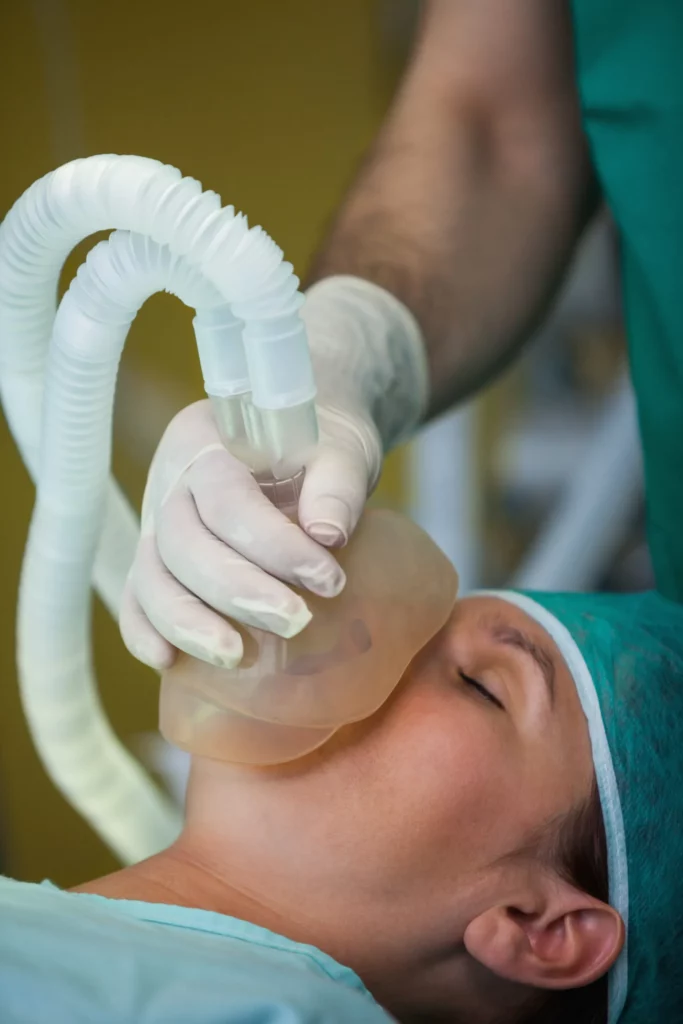Introduction
For those plagued by chronic sinus problems, the idea of breathing freely can seem like a distant dream. Whether you’re struggling with sinusitis, nasal polyps, or recurring infections, sinus surgery offers a pathway to relief. With advanced techniques like Functional Endoscopic Sinus Surgery (FESS) and Balloon Sinuplasty, many patients are experiencing quicker recoveries and long-lasting results. But before undergoing surgery, it’s important to understand the options, recovery expectations, and financial considerations. This guide dives into everything you need to know about sinus nose surgery—offering you clarity on what lies ahead.
Key Takeaways
- Sinus surgery can alleviate chronic sinusitis, nasal polyps, and improve overall breathing.
- Functional Endoscopic Sinus Surgery (FESS) and Balloon Sinuplasty are common procedures with distinct approaches.
- Recovery typically involves a few weeks of rest, saline irrigation, and avoiding strenuous activities.
- Costs vary significantly depending on the type of surgery, location, and insurance coverage, averaging $10,000 for FESS.
- Consulting with a qualified ENT specialist can help determine the best surgical option and provide a clear recovery plan.
Understanding Sinus Nose Surgeries
Sinus nose surgeries aim to open up blocked sinus passageways, allowing for better drainage and relief from chronic sinus issues. These procedures can treat conditions like chronic sinusitis, nasal polyps, and other obstructions that impact breathing and overall health.
Common Reasons for Sinus Surgery
People undergo sinus surgery for various reasons. Chronic sinusitis, which persists for more than 12 weeks despite treatment, is a common cause. Nasal polyps, noncancerous growths, can also block nasal passages and necessitate surgery. Additionally, recurrent infections that do not respond to medication might require surgical intervention.
Detailed Overview of Sinus Nose Surgery Procedures
Functional Endoscopic Sinus Surgery (FESS)
FESS is a widely used procedure to treat chronic sinus conditions. It involves using an endoscope, a thin tube with a camera, to visualize the sinus cavities. Surgeons then remove blockages, such as polyps or tissue, to improve drainage.
- Minimally invasive procedure
- Uses an endoscope for better visualization
- Removes blockages to improve drainage
- Quick recovery time
Balloon Sinuplasty
Balloon Sinuplasty is another minimally invasive procedure. It involves inserting a small balloon into the blocked sinus passage and inflating it to widen the passageway. This helps restore normal sinus drainage without removing any tissue. It’s often preferred for its simplicity and quick recovery time, especially in less severe cases.
Image-Guided Sinus Surgery
Image-Guided Sinus Surgery uses advanced imaging technology to provide real-time feedback during the procedure. This allows for greater precision, especially in complex cases where anatomy might be distorted due to previous surgeries or severe disease.
Choosing the Right Procedure
Selecting the right sinus surgery depends on the severity of your condition, previous treatments, and overall health. FESS might be ideal for significant blockages, while Balloon Sinuplasty could be a better option for milder cases. Image-guided surgery is often reserved for more complex scenarios.
Benefits of Sinus Nose Surgery
Long-Term Relief from Chronic Sinusitis
One primary benefit of sinus surgery is long-term relief from chronic sinusitis. Surgery can reduce the frequency and severity of sinus infections, providing relief that medications often cannot achieve.
Improved Breathing and Quality of Life
Besides reducing infections, sinus surgery significantly enhances breathing. Many patients report better sleep quality and reduced snoring post-surgery. Improved oxygenation can also lead to increased energy levels.
Recovery Process After Sinus Nose Surgery
Immediate Post-Surgery Expectations
Post-surgery, patients may experience mild pain, swelling, and congestion, but these symptoms typically subside within a week. Common post-op experiences include:
- Mild bleeding from the nose
- Swelling around the nose and eyes
- Avoiding nose-blowing for at least a week to prevent complications
Short-Term Recovery Tips
During recovery, it’s essential to:
- Use saline nasal sprays to keep passages moist and clean
- Avoid strenuous activities and heavy lifting
- Elevate your head during sleep to reduce swelling
- Stay hydrated and follow a balanced diet
Long-Term Healing and Care
Long-term recovery requires ongoing care, including follow-up appointments and saline irrigations. Avoiding smoking and managing allergies can help maintain the benefits of surgery.
Costs and Financial Considerations
Factors Affecting Surgery Costs
Costs for sinus surgery vary based on the type of procedure, the facility, and any additional treatments needed. FESS tends to be more expensive than Balloon Sinuplasty due to its complexity.
Insurance Coverage Insights
Many insurance plans cover sinus surgery, but it’s crucial to verify the specific coverage and potential out-of-pocket expenses. Some surgeries may require pre-authorization from the insurance provider.
Out-of-Pocket Expenses
Even with insurance, co-pays, deductibles, and other fees may apply. Discuss payment plans with your healthcare provider if necessary.
Choosing the Right Surgeon and Facility
Evaluating Surgeon Credentials
Ensure that your surgeon is a board-certified ENT specialist with extensive experience in sinus surgeries. Check patient reviews and testimonials to gauge satisfaction.
Hospital vs. Surgical Center
Both hospitals and surgical centers offer sinus surgeries, but costs and quality of care can differ. Hospitals typically provide broader services, while surgical centers might offer more cost-effective options for outpatient procedures.
Conclusion
Sinus surgery can dramatically improve quality of life for those with chronic sinus issues. By understanding the types of surgeries, recovery expectations, and financial considerations, you can make an informed decision. Consulting with a qualified ENT specialist is key to ensuring a successful outcome.
Frequently Asked Questions (FAQ)
What are the risks associated with sinus surgery?
Risks include bleeding, infection, scarring, and changes in your sense of smell. However, these risks are generally low when performed by an experienced ENT specialist.
How long does the recovery process take?
The recovery process typically takes a few weeks, with most patients returning to normal activities within one to two weeks.
Will my insurance cover the surgery costs?
Insurance coverage varies based on the plan and whether the surgery is deemed medically necessary. Check with your provider for pre-authorization requirements and coverage details.
Final Notes
Sinus surgery can be a game-changer for those suffering from chronic sinus issues. Weighing the benefits against the costs and recovery can help you make the best decision for your health.
ACT NOW! GET A FREE CONSULTATION – TODAY ONLY!
CALL US NOW TO LEARN MORE ABOUT HOW A BROKEN NOSE IS REPAIRED BY A PLASTIC SURGEON! 346-413-9313
Don’t miss this exclusive opportunity to get expert advice and begin your journey towards a new, confident you. Texas Sinus and Snoring’s dedicated team is ready to help you achieve the results you’ve always wanted. Contact us today to schedule your free consultation and take the first step towards a better, more confident you!






